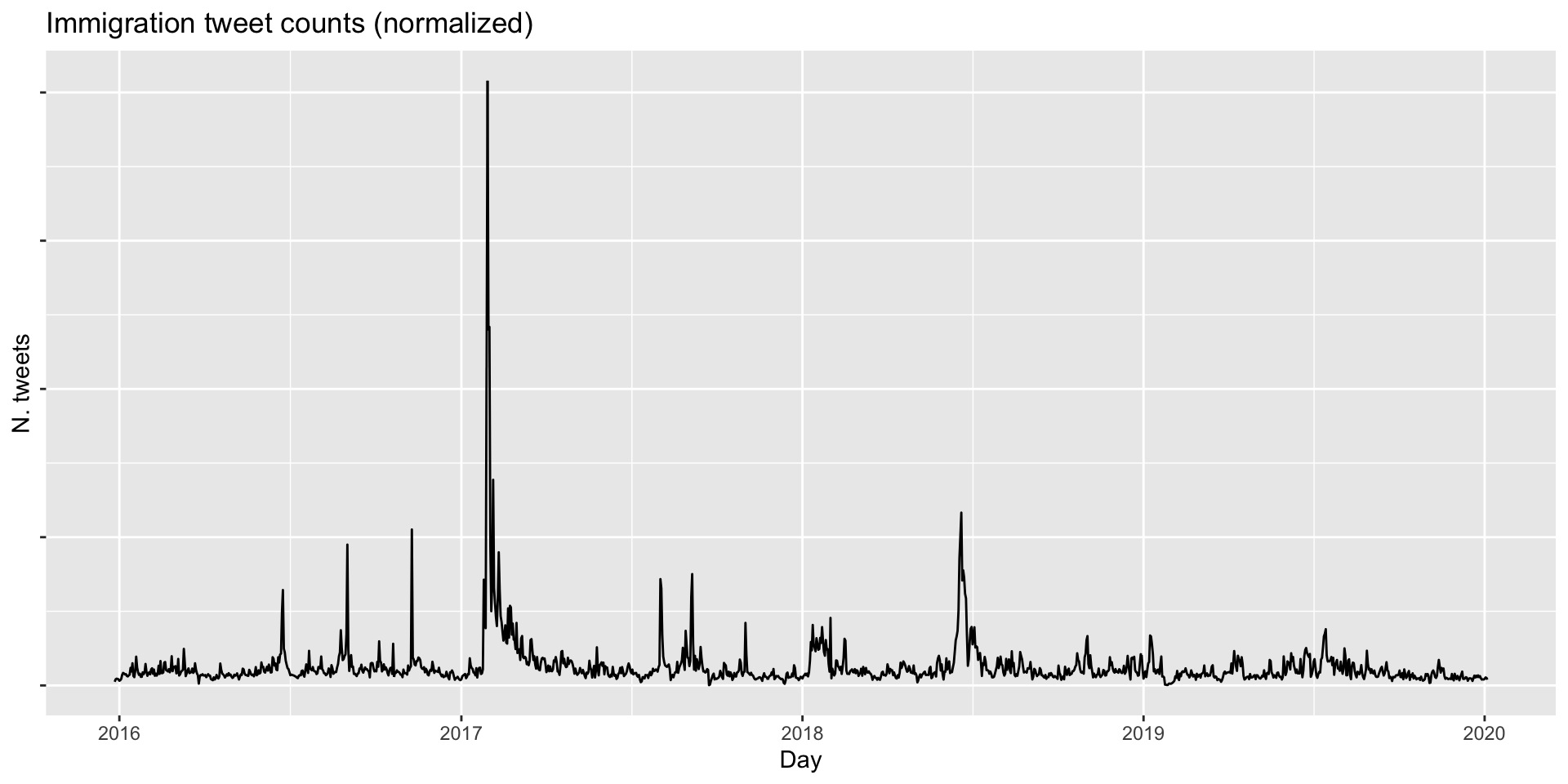Using APIs
SICSS, 2022
Christopher Barrie
Introduction
- Why count tweets?
Test your API call
Of substantive interest
- But… design considerations (normalizing)
Counting tweets
Format date
end start tweet_count
1 2019-12-27T01:00:00.000Z 2019-12-27T00:00:00.000Z 47
2 2019-12-27T02:00:00.000Z 2019-12-27T01:00:00.000Z 38
3 2019-12-27T03:00:00.000Z 2019-12-27T02:00:00.000Z 19
4 2019-12-27T04:00:00.000Z 2019-12-27T03:00:00.000Z 14
5 2019-12-27T05:00:00.000Z 2019-12-27T04:00:00.000Z 10
6 2019-12-27T06:00:00.000Z 2019-12-27T05:00:00.000Z 12
time
1 2019-12-27 00:00:00
2 2019-12-27 01:00:00
3 2019-12-27 02:00:00
4 2019-12-27 03:00:00
5 2019-12-27 04:00:00
6 2019-12-27 05:00:00Adding arguments
Adding user parameters
end start tweet_count
1 2019-12-28T00:00:00.000Z 2019-12-27T00:00:00.000Z 1
2 2019-12-29T00:00:00.000Z 2019-12-28T00:00:00.000Z 0
3 2019-12-30T00:00:00.000Z 2019-12-29T00:00:00.000Z 1
4 2019-12-31T00:00:00.000Z 2019-12-30T00:00:00.000Z 4
5 2020-01-01T00:00:00.000Z 2019-12-31T00:00:00.000Z 6
6 2020-01-02T00:00:00.000Z 2020-01-01T00:00:00.000Z 2
7 2020-01-03T00:00:00.000Z 2020-01-02T00:00:00.000Z 3
8 2020-01-04T00:00:00.000Z 2020-01-03T00:00:00.000Z 1
9 2020-01-05T00:00:00.000Z 2020-01-04T00:00:00.000Z 0Normalizing
normalize_counts <- function(tweetcounts, baselinecounts) {
tweetcounts <- tweetcounts$tweet_count
baselinecounts <- baselinecounts$tweet_count
normalized_counts <- tweetcounts/baselinecounts
return(normalized_counts)
}
tweetcounts$normalized_count <-
normalize_counts(tweetcounts = tweetcounts,
baselinecounts = baselinecounts)
head(tweetcounts$normalized_count)[1] 0.8641441 1.4070588 1.8567669 2.3317991 1.1134310 1.0938708

